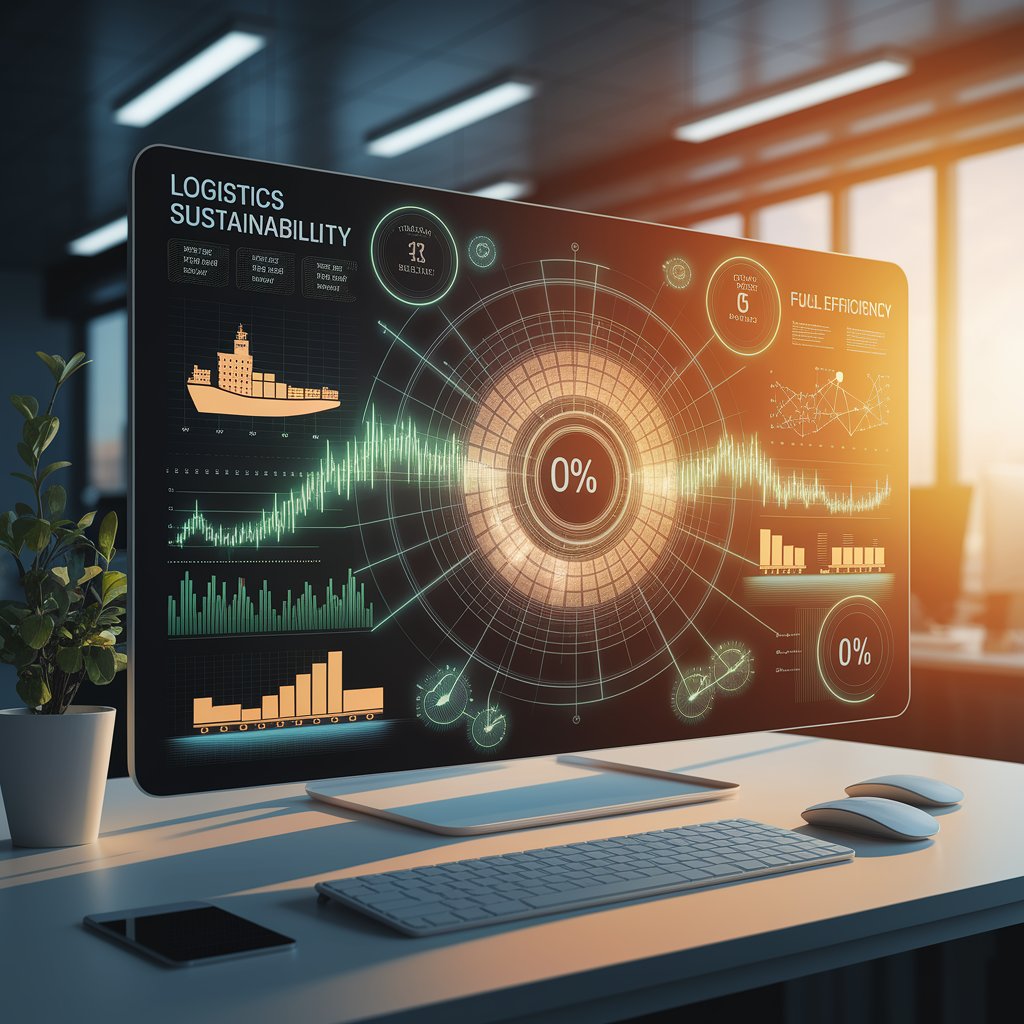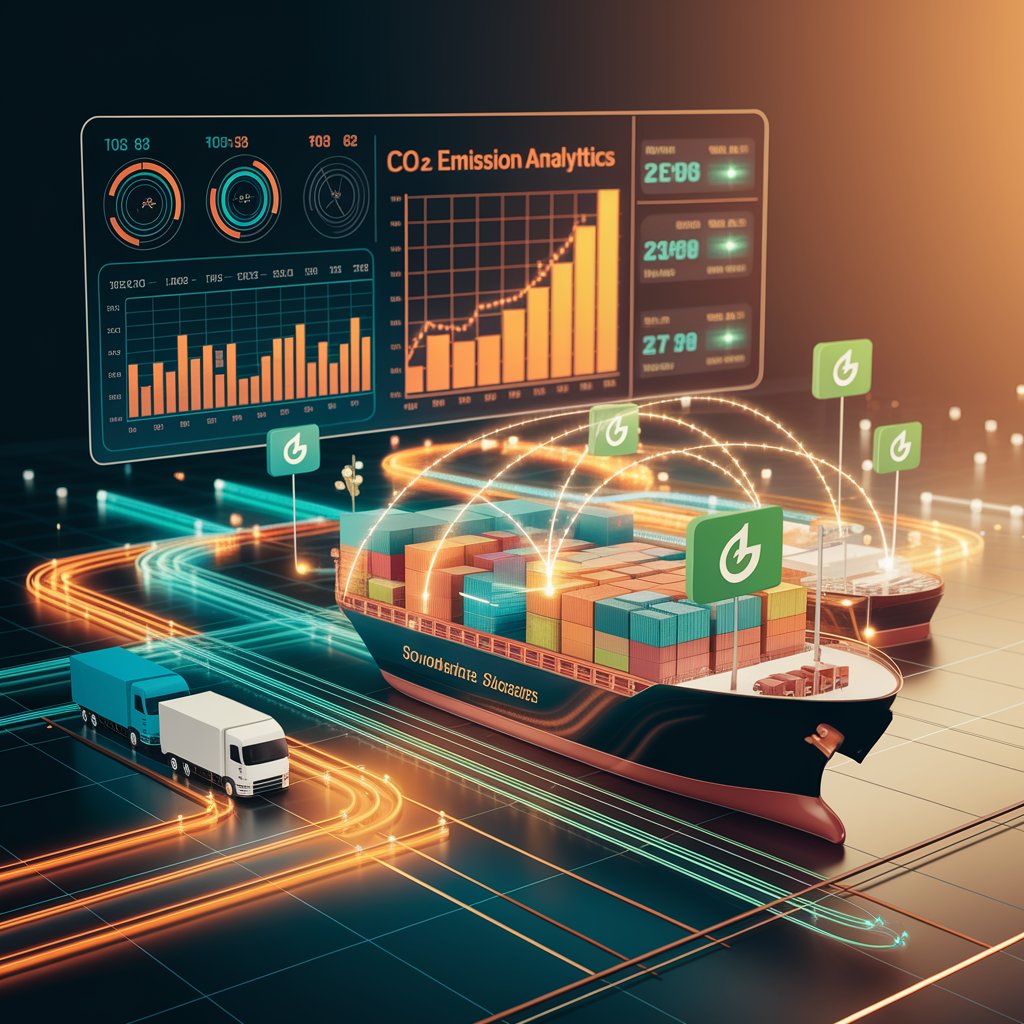Logistics Sustainability Analytics: Driving Greener Supply Chains

Introduction
That’s where logistics sustainability analytics comes in. By applying advanced analytics, companies can track environmental impact, optimize transportation, and align logistics strategies with global climate goals.
What Is Logistics Sustainability Analytics?
Logistics sustainability analytics refers to the use of data analysis, AI, and digital tools to measure and improve the environmental performance of logistics operations. It goes beyond traditional cost and efficiency metrics by focusing on:
- Carbon emissions tracking
- Energy and fuel efficiency
- Packaging optimization
- Waste reduction
- Compliance with sustainability regulations
By turning raw data into actionable insights, logistics providers can balance profitability with environmental responsibility.

Key Features of Logistics Sustainability Analytics
- Carbon Footprint Tracking – Measure CO₂ emissions across transport modes.
- Route Optimization for Sustainability – Use AI to minimize fuel consumption.
- Green KPIs & Dashboards – Monitor emissions per ton-mile, energy use, and waste reduction.
- Sustainable Supplier Analytics – Evaluate vendors based on ESG performance.
- Scenario Planning – Model the impact of alternative fuels, electric fleets, or modal shifts.
- Regulatory Compliance Tools – Ensure alignment with climate reporting frameworks.
Benefits of Logistics Sustainability Analytics 📈
- Regulatory Compliance – Meet international standards (e.g., EU CSRD, IMO emissions rules).
- Cost Savings – Reduce fuel usage and improve efficiency.
- Customer Trust – Demonstrate commitment to environmental responsibility.
- Innovation & Growth – Identify new opportunities in green logistics services.
- Risk Mitigation – Anticipate penalties, disruptions, or reputational damage.
- Sustainability Reporting – Provide transparent data to investors and stakeholders.

Real-World Applications
- Freight Forwarders – Offer carbon reporting as a value-added service.
- Carriers – Optimize fleet fuel efficiency and adopt cleaner fuels.
- Retail & E-commerce – Track packaging sustainability and last-mile emissions.
- Cold Chain Logistics – Reduce energy usage in refrigeration while ensuring safety.
- Ports & Terminals – Monitor energy efficiency and adopt greener infrastructure.
Challenges in Logistics Sustainability Analytics
- Data Fragmentation – Sustainability data often comes from multiple sources.
- Standardization Gaps – No universal framework for logistics carbon measurement.
- High Implementation Costs – Advanced tracking systems require upfront investment.
- Complex Supply Chains – Multiple stakeholders make measurement difficult.
- Greenwashing Risks – Data must be accurate to avoid misleading claims.

Best Practices for Effective Implementation
- Start with Scope 1, 2, and 3 Emissions – Cover direct, indirect, and supply chain-related emissions.
- Integrate Systems – Connect ERP, TMS, WMS, and IoT sensors.
- Adopt AI & Predictive Analytics – Forecast emissions under different scenarios.
- Engage Suppliers – Share sustainability requirements across the value chain.
- Regularly Audit Data – Ensure accuracy and transparency in reporting.
- Align with Global Standards – Use frameworks like GLEC or ISO 14064.
The Future of Logistics Sustainability Analytics 🚀
The next wave will be defined by:
- Digital Twins – Simulate logistics networks to test sustainability strategies.
- Blockchain for Transparency – Tamper-proof environmental reporting.
- AI-Driven Optimization – Autonomous systems balancing cost and carbon impact.
- Alternative Fuels Analytics – Measuring benefits of hydrogen, EVs, and biofuels.
- Circular Supply Chains – Analytics for reuse, recycling, and reverse logistics.
Conclusion
Logistics sustainability analytics is no longer optional—it’s the foundation of greener, more responsible supply chains. By tracking emissions, optimizing operations, and adopting global standards, businesses can reduce costs, build resilience, and meet rising sustainability expectations.
For logistics providers, shippers, and carriers, investing in logistics sustainability analytics means staying compliant, competitive, and future-ready.
